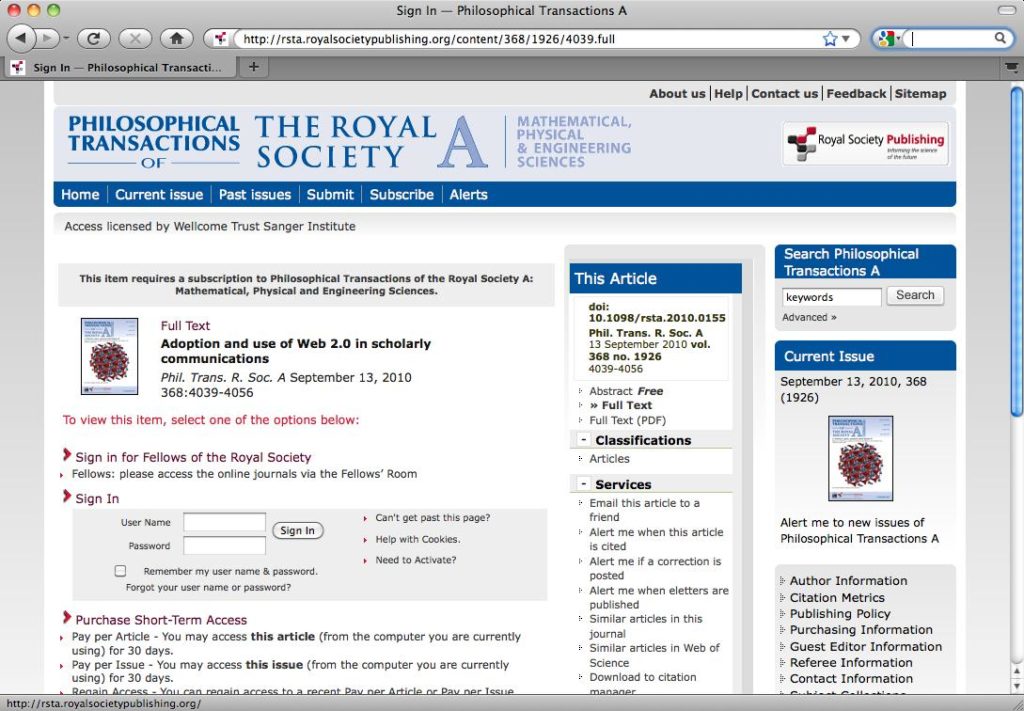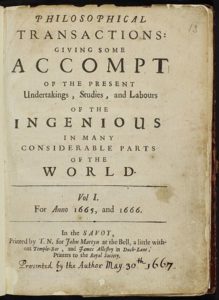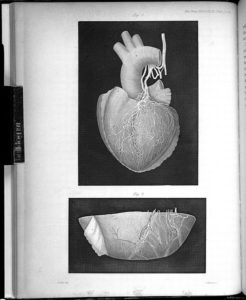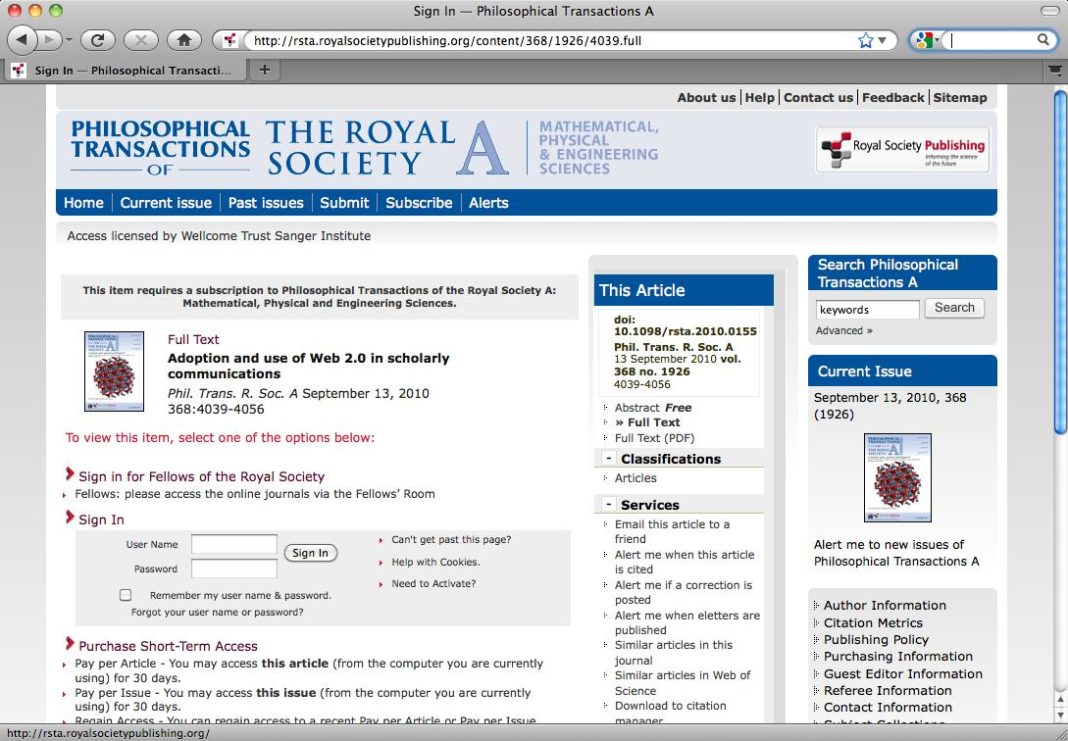Philosophical Transactions of the Royal Society is a scientific journal published by the Royal Society. In its earliest days, it was a private venture of the Royal Society’s secretary. It was established in 1665, making it the first journal in the world exclusively devoted to science, and therefore also the world’s longest-running scientific journal. It became an official society publication in 1752.

It was launched in March 1665 by Henry Oldenburg (c.1619-1677), the Society’s first Secretary, who acted as publisher and editor. Oldenburg spun his wide-ranging network of European natural-philosophical contacts, the activity of the Royal Society, and his skills as a linguist and scientific editor into a new form of print intended to promote the enterprise of early modern science and perhaps make some money on the side. The journal appeared monthly, selling for one shilling.

In 1887 the journal expanded and divided into two separate publications, one serving the physical sciences (Philosophical Transactions of the Royal Society A: Mathematical, Physical and Engineering Sciences) and the other focusing on the life sciences (Philosophical Transactions of the Royal Society B: Biological Sciences). Both journals now publish themed issues and issues resulting from papers presented at the Discussion Meetings of the Royal Society. Primary research articles are published in the sister journals Proceedings of the Royal Society, Biology Letters, Journal of the Royal Society Interface, and Interface Focus.

Over the centuries, many important scientific discoveries have been published in the Philosophical Transactions. Famous contributing authors include: Isaac Newton, Benjamin Franklin, William Roy, Charles Darwin, Michael Faraday, Stephen Hawking, etc.
According to Wikipedia; royalsocietypublishing; royalsociety















